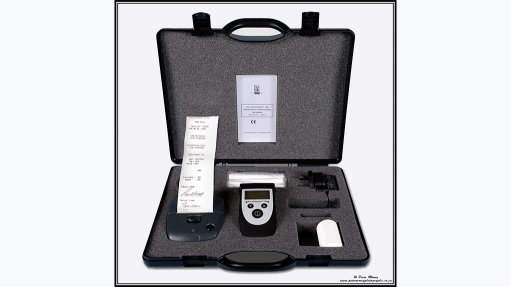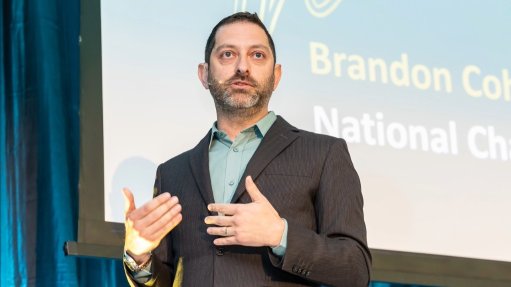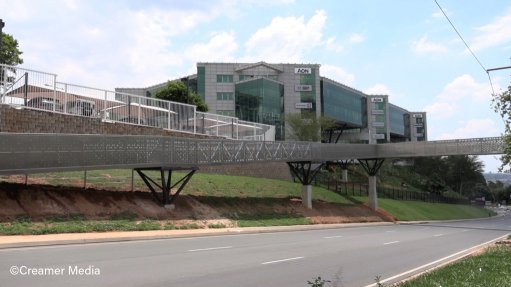SA’s not-so-impressive showing in the governance stakes
South Africa is one of the continent’s powerhouses – politically and economically – with its gross domestic product (GDP) being the largest, although it had to contend with being second best to Nigeria in the GDP stakes between 2014, when the latter rebased its economy to include previously uncounted industries, and 2016, when softening oil prices wrought havoc with the West African nation’s economy.
On the equally important governance criterion, however, South Africa is not the continent’s number one country – that coveted status belongs to the island nation of Mauritius, according to the 2017 Ibrahim Index of African Governance (IIAG), released late last month. Second is Seychelles, followed by Botswana and Carbo Verde, with Namibia rounding out the top five. South Africa is ranked sixth.
Governance – defined as the provision of the political, social and economic goods and services that every citizen has the right to expect from the State and that the State has the responsibility to deliver – is measured across four components, namely safety and rule of law, participation and human rights, sustainable economic opportunity, and human development.
While South Africa performed commendably with respect to participation and human rights, as well as sustainable economic opportunity, coming in at 4 out of the 54 on both measures, its overall ranking was dragged down by its showing on the safety and rule of law and human development measures, where it was ranked seventh and eighth respectively.
What’s more, according to the 2017 IIAG, South Africa is among the ten African countries whose overall governance deteriorated the most over the past decade, with its peers in this group including the likes of Libya, Madagascar, Mali and the Central African Republic.
It is not all doom and gloom, though, with the 2017 IIAG report noting that there are signs of South Africa and 11 other countries bouncing back in the overall governance stakes. In fact, these countries registered a positive trend in the past five years, but this was not enough to change their ten-year negative trajectory. And, along with Mauritius, South Africa achieved the highest score – 75 points – for protecting minorities against discrimination.
The IIAG is an initiative of the Mo Ibrahim Foundation, whose Sudanese-born billionaire namesake founder – who made his fortune in telecommunications – has been on a crusade to encourage better governance in Africa for more than a decade. This has included the launch, in 2007, of the Mo Ibrahim Prize for Achievement in African Leadership, which awards a $5-million initial payment and a $200 000 yearly payment for life to a retired African head of State who would have demonstrated exceptional leadership and changed his or her country for the better.
Nelson Mandela was the inaugural honorary laureate in 2007, and other recipients have been Mozambique’s Joaquim Chissano (2007), Botswana’s Festus Mogae (2008), Carbo Verde’s Pedro Pires (2011) and Namibia’s Hifikepunye Pohamba (2014). No awards were made in 2009, 2010, 2012, 2013, 2015 and 2016 for lack of a suitable candidate.
It is unlikely that yet another laureate will emerge from our Southern African neck of the woods any time soon, if the records of the two Presidents from the region who left office this year are anything to go by.
One of the duo, Angola’s Eduardo dos Santo, handed over the baton in August, after having been at the helm for 38 years. Incidentally, Angola is Africa’s third-largest economy – after South Africa and Nigeria – but its citizens have nothing to show for it. During his nigh-four-decade-long reign, Dos Santos not only amassed an impressive amount of political power in his hands but also ensured that members of his close family accumulated fabulous personal wealth. The most prominent is his eldest daughter, Isabel, said to be the richest woman in Africa. She headed the country’s oil parastatal, Sonangol, but has since been dismissed from this sinecure by Dos Santos’ successor, former Defence Minister Joao Lourenco. Her private interests are in sectors including telecommunications, banking and cement making in both Angola and its former colonial master, Portugal. Isabel’s half-siblings are also filthy rich courtesy of their father.
Then there is Robert Mugabe, the child prodigy who would earn a primary schoolteacher’s diploma while he was still a teenager before obtaining seven university degrees and leading his country’s struggle for independence from Britain. He had been Zimbabwe’s leader for 37 years when his rule came to a rude end last month. What the world will remember him for is his presiding over a regime that butchered about 20 000 of its own citizens just to maintain political dominance and running the country’s once-thriving economy into the ground. He is also notorious for trampling on property rights by grabbing farmland from nonindigenous Zimbabweans. All the good he did – ensuring that even the poorest of the poor in his young nation had access to a decent education and healthcare, for example – will be forgotten. It’s as if he was not listening when Julius Nyerere, the late founding President of Tanzania, told him in April 1980, on the eve of Zimbabwe’s independence, that he was about to inherit Africa’s Jewel, exhorting him to keep it that way.
Article Enquiry
Email Article
Save Article
Feedback
To advertise email advertising@creamermedia.co.za or click here
Comments
Press Office
Announcements
What's On
Subscribe to improve your user experience...
Option 1 (equivalent of R125 a month):
Receive a weekly copy of Creamer Media's Engineering News & Mining Weekly magazine
(print copy for those in South Africa and e-magazine for those outside of South Africa)
Receive daily email newsletters
Access to full search results
Access archive of magazine back copies
Access to Projects in Progress
Access to ONE Research Report of your choice in PDF format
Option 2 (equivalent of R375 a month):
All benefits from Option 1
PLUS
Access to Creamer Media's Research Channel Africa for ALL Research Reports, in PDF format, on various industrial and mining sectors
including Electricity; Water; Energy Transition; Hydrogen; Roads, Rail and Ports; Coal; Gold; Platinum; Battery Metals; etc.
Already a subscriber?
Forgotten your password?
Receive weekly copy of Creamer Media's Engineering News & Mining Weekly magazine (print copy for those in South Africa and e-magazine for those outside of South Africa)
➕
Recieve daily email newsletters
➕
Access to full search results
➕
Access archive of magazine back copies
➕
Access to Projects in Progress
➕
Access to ONE Research Report of your choice in PDF format
RESEARCH CHANNEL AFRICA
R4500 (equivalent of R375 a month)
SUBSCRIBEAll benefits from Option 1
➕
Access to Creamer Media's Research Channel Africa for ALL Research Reports on various industrial and mining sectors, in PDF format, including on:
Electricity
➕
Water
➕
Energy Transition
➕
Hydrogen
➕
Roads, Rail and Ports
➕
Coal
➕
Gold
➕
Platinum
➕
Battery Metals
➕
etc.
Receive all benefits from Option 1 or Option 2 delivered to numerous people at your company
➕
Multiple User names and Passwords for simultaneous log-ins
➕
Intranet integration access to all in your organisation














